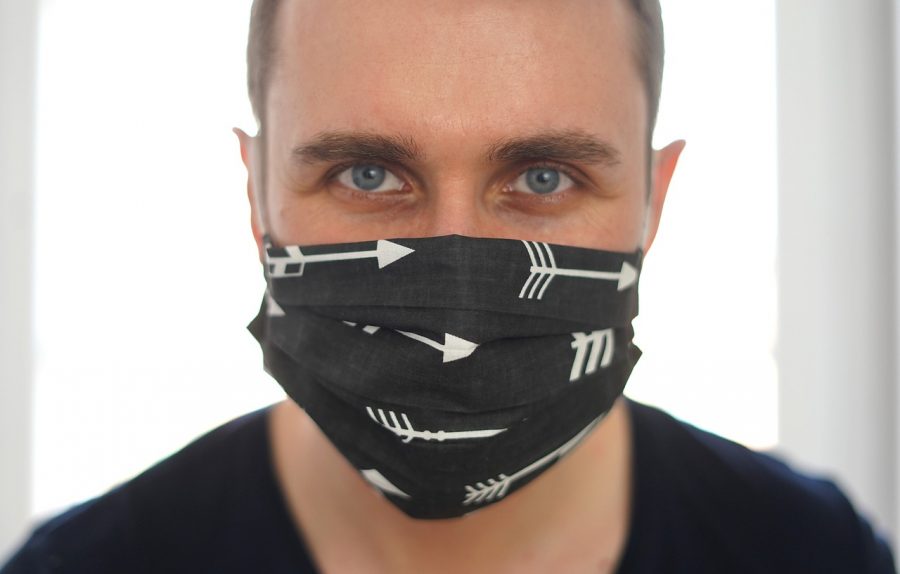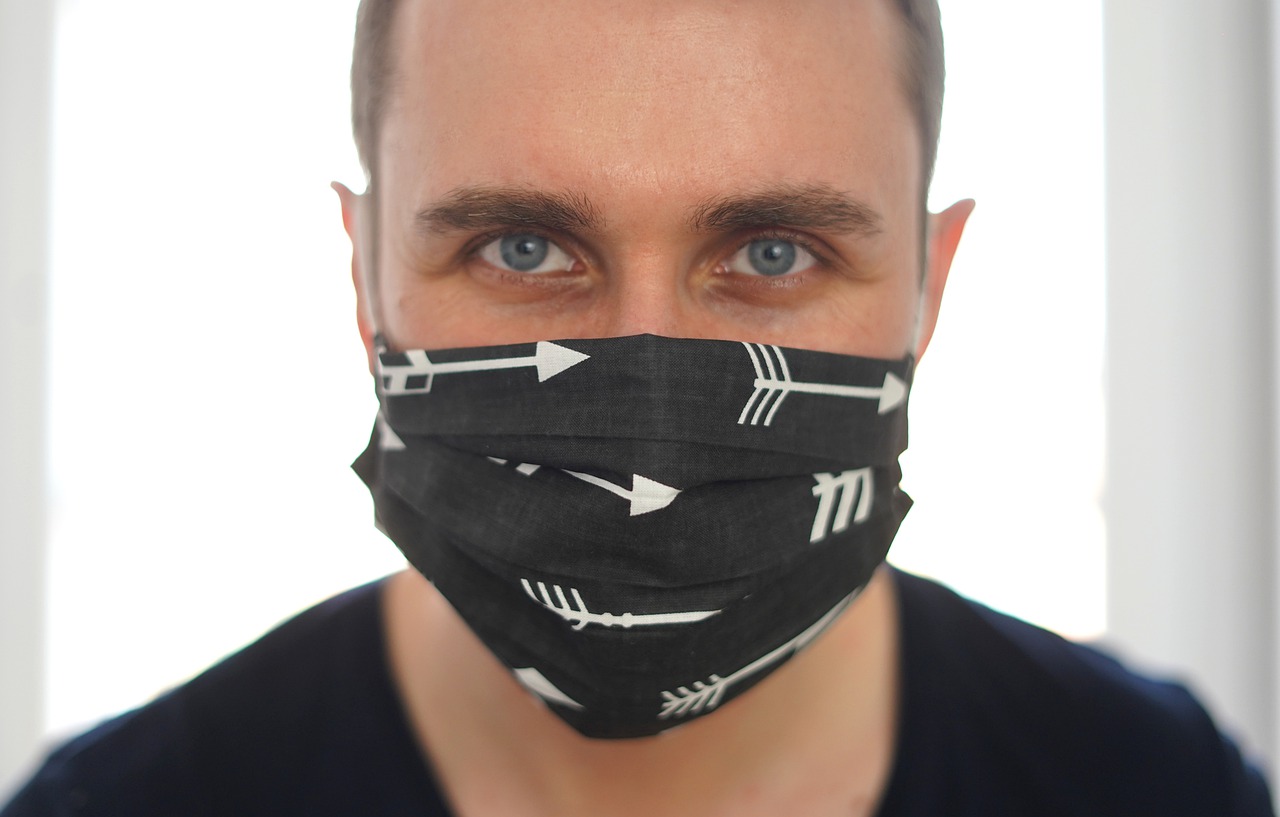Young South African: My Experience and Victory Over Covid-19
At a time he was meant to be celebrating his 26th birthday, Brandon* found himself with a bad cough and a tight chest that at times made speaking or breathing, a struggle. (*not his real name) It was just over two weeks after South Africa had gone into lockdown, when Brandon first started experiencing a […]
At a time he was meant to be celebrating his 26th birthday, Brandon* found himself with a bad cough and a tight chest that at times made speaking or breathing, a struggle. (*not his real name)
It was just over two weeks after South Africa had gone into lockdown, when Brandon first started experiencing a loss of taste and appetite, night sweats and fatigue.
At the time, Health Minister Dr Zweli Mkhize announced that SA had 2,028 confirmed cases of coronavirus, and that COVID-19 had claimed the lives of 25 people.
Brandon got tested and three days later, on 8 April – he received the dreaded news that he had tested positive. His symptoms worsened in the following week, and on his birthday the effects of covid-19 were at their worst.
“My chest was bad,” he says, recalling how he would start coughing whenever he tried to speak.
That was two months ago.
In January, Brandon – who normally lives in Pretoria – had travelled to Durban to work at his employer’s Durban branch for a few months… but because of lockdown he stayed longer, and worked remotely from his parent’s home.
In an interview with SANews during this Youth Month, the chemical engineer said that while he is not a smoker and is very active in sports, he found himself battling the virus and being confined to his room for over a month.
His illness began with flu-like symptoms (three days after lockdown started), and was followed by a fever the following day, which to Brandon felt like the usual flu-like symptoms.
He went to the hospital to see a doctor and was given medication for his symptoms, which included a mild cough, but was not tested for the virus…. because at that time, the SA government had prioritised COVID-19 testing for those who may have been exposed to the virus.
Brandon’s fever lasted for a day and he started feeling better heading into the weekend. Things looked up.
But over the weekend, he received news that someone at his workplace, whom he had been exposed to, had tested positive for the virus.
Coincidentally on that Sunday morning (6 April), he himself had visited the hospital to get treatment for an allergic reaction.
As soon as her heard the unnerving news that his colleague had tested positive, Brandon returned to the hospital to get tested.
“I was like maybe that is the reason why I had the flu. At the time, I was more worried about my family because I was staying at the same house with them. I was also worried about the fact that that I didn’t know when I got it [COVID-19],” he said.
He says waiting for the results was a very unsettling few days, and finding out he was positive disrupted not only his life, but that of his family too.
He had to begin life in isolation, which included the use of a separate bathroom and not sharing a meal with his family.
“I wouldn’t eat with my family and they would leave food by the door. Obviously, you don’t want to make it worse and spread it to your family as well,” he says.
Brandon also took leave from work to focus on his health.
After his diagnosis, the Department of Health officials gave Brandon a call to check-in on him.
“When they called to give me the results, they explained the basics of what you can do,” he says.
Brandon stresses that each person who contracts COVID-19 will have their own individual experience with the virus.
“I think what people need to understand is how everyone isolates will be different basically based on your circumstances and based on your health condition. So the doctors will treat you, not for COVID-19 because there is no cure (but) they will treat you for the symptoms that you have.”
In Brandon’s case, his cough was the biggest hurdle.
“My cough was so bad that it lasted for about four to five weeks. So that day, they gave me a cough mixture, antibiotics and chest relief medication to make life a little more bearable,” he says.
Officials also paid the family a home visit where they checked if his parents had the virus. Fortunately, they didn’t contract it… and although it could have been natural for them to fear being near their son, they said they were only concerned with his wellbeing.
As the number of infected cases increased, Brandon kept his eye on the ball of making a full recovery. He says he always felt he had a fighting chance because he’s active in sport and doesn’t have any comorbidity issues.
He also took his medication and maintained basic hygiene.
It was tough though and he admits he struggled to sleep at night, often watching movies or reading.
Looking back on his experience, Brandon says not once did he feel like his life was over or that he would run out of time to do the things he still wanted to do.
“I always believed that I would come out of this. The thought of death or anything like that did not even cross my mind. At the time, I tried to look at the positives. I tried to keep my mind occupied. I caught up on movies where I could,” he says.
Brandon had been hoping to apply for a permanent transfer to Durban, but with lockdown putting economic pressure on business, his employment prospects took a knock.
Brandon says: “It was an opportunity for me to get more experience in a higher level position. I was looking forward to the opportunity to work hard and show my worth, but obviously it was out of my control.” he said.
Brandon’s comments follow on President Cyril Ramaphosa’s Youth Day address in which he told young people that there is life beyond the pandemic.
This week SA commemorated the 44th anniversary of the Soweto Uprising in which may school pupils lost their lives on 16 June 1976.
Just as those young people decades ago changed the South Africa we live in, with support from others, Brandon also highlights the importance of having a support structure in place in order to beat the virus.
“To have support around you is key. Especially when you can get food and medication. If you stay by yourself, it would be very challenging [to do].”
In addition to the medication he received from the hospital, Brandon also used home remedies.
“In our community, home remedies like ginger milk, lemon, honey and boiling water really helped. Those are the main things that I had to assist me during the time I had Coronavirus.”
As Brandon says, anyone can contract the virus… and while it’s not a death sentence, he says it is important to adhere to the World Health Organisation guidelines to practice good hygiene and social distancing.
The Department of Health advises COVID-19 patients to self-isolate for two weeks after their positive test before returning for a second test.
While most patients usually test negative after the initial 14-day period of isolation, this was not the case for Brandon.
After first testing positive on 8 April, the 26-year-old tested positive again on 20 April and had to return to self-isolation for another fortnight.
“Obviously I was disheartened at the fact that I was positive again. So for almost a good month and a half, I was in isolation. So I was upset mainly for the second results because I wanted to be done with the COVID-19 situation,” Brandon admits.
However he reveals that testing positive has made him appreciate the smaller things in life… like going for a leisurely drive, hanging out with friends and family, and celebrating one’s birthday!
He finally celebrated his belated birthday a recovered man, when he tested negative in early May.
Brandon urges young people to be more responsible.
“I think as youth, we need to be more proactive in what’s happening around us and also to be helpful and be aware of what we are doing. I am not holding anyone back from having a good time and stuff, but I also think of the people that are older than us or even younger than us who are at risk of getting COVID,” he says.
He also urges those battling the pandemic to not only to take care of their bodies, but also to have a positive mind-set.
“The most important thing is to just have faith and belief that you can overcome the virus essentially. As much as it is about taking care of your body and relaxing, you must also take care of your mind. If your mind is not in a good space, it will just make matters worse for you,” he says.
While KwaZulu-Natal has over 4,800 confirmed cases and over 80 deaths due the virus, today Brandon is among the over 2,500 people in KwaZulu-Natal who have come out victorious over the virus. – SAnews.gov.za


